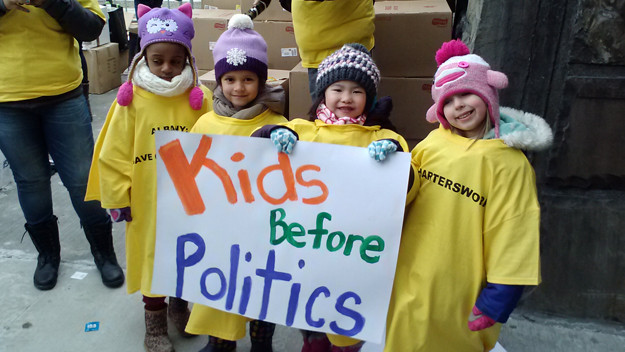
Five Facts About A Request to Intervene In a Lawsuit Seeking to Deny School Choice to Low-Income New Jersey Families.
September 18, 2019
Mark Weber Says New Jersey Teachers Suffer From a “Wage Gap.” Mike Lilley Says Weber’s Analysis is “Deeply Flawed.”
September 23, 2019It’s Incredible! Since PARCC, New Jersey Students Are Getting More Art and Music Than Ever Before!
Governor Phil Murphy was in a great mood at Paramus High School — “I can tap-dance a little,” he said, “and now I tap-dance for a living” — as he celebrated New Jersey’s status as “the only state with universal access in schools to art programs.” In fact, participation among New Jersey students, he boasted, has jumped from “65 percent in 2006 to 81 percent.”
What? I thought new course content standards paired with aligned assessments like PARCC were crowding everything but reading and math out of the classroom, turning our precious children into joyless drudges.
At least that’s what the experts like Jane L. David told us: New standards and PARCC would “narrow the curriculum. Teachers, she warned in 2011, “are now required to increase time devoted to the tested subjects — language arts and math — and “districts decreased time allotted to other subjects and activities, including science, social studies, art, music, physical education, and recess.”
In this 2015 video produced by “Parents Against PARCC,” parents and teachers bemoaned the deterioration of children’s love for learning as tested subjects crowd out the “fun” parts of school.
Also in 2015 but closer to home, Mark Weber/Jersey Jazzman ripped into a well-balanced piece in the Atlantic by Laura McKenna (a NJ parent), calling her support for honest assessments “poorly reasoned,” “condescending,” “obnoxious,” and a result of “the influence of the education-industrial complex, the profiteers behind the testing movement.” Weber said indignantly, “We have reams of research showing the relative benefits and risks of vaccination; where is any equivalent evidence regarding standardized testing, let alone the PARCC?” He concludes with this:
I’d say that after having seen the narrowing of the curriculum in New Jersey’s urban schools, suburban parents should be asking if the same thing is going to happen to their schools post-PARCC.
FYI, Weber’s piece is posted at the National Education Policy Center, which is funded by NEA and AFT, the national teacher unions that oppose “high-stakes” testing (which are only high-stakes for districts and states, not students and teachers). Weber references a 2006 article in NEPC that claims, “since NCLB was passed, 71 percent of school districts cut back on subjects like history and music so they could spend more time on the tested subjects.
And, just last year Daniel Katz wrote, “ School children in New Jersey, especially those in struggling districts, will get less science, less social studies, less art and music, and our youngest children will get a lot less play – and far more test preparation.
Guess what? Jane David, Mark Weber, Daniel Katz, and NEA/AFT are wrong! New Jersey students are spending more time on arts and music education than ever! PARCC hasn’t narrowed the curriculum (and, in fact, the shift to critical thinking skills instigated by the Common Core and aligned assessments like PARCC may be serving to enhance students’ incentives to engage in the arts).
At the event in Paramus last week Robert Morrison, director of Arts Ed NJ, marvelled, “250,000 more students are engaged in the arts this year than a decade ago. That is incredible!” Gov. Murphy added, “let’s not forget that arts are an incredible part of our state’s educational experience.”
Incredible indeed. Next time let’s all be a bit more incredulous about what “experts” with agendas tell us.




